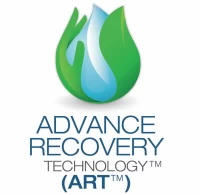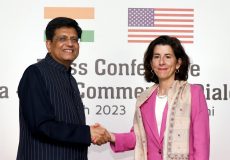 Here are the quick summaries of 5 posts, 4 case summaries and other IP developments that took place last week. Important IP cases that we’re missing out on? Especially from other High Courts? Please let us know so we can include them!
Here are the quick summaries of 5 posts, 4 case summaries and other IP developments that took place last week. Important IP cases that we’re missing out on? Especially from other High Courts? Please let us know so we can include them!
Highlights of the Week
Learning from India’s Disastrous Experience in Protecting Itself against Biopiracy
In light of the upcoming WIPO Diplomatic Conference on Genetic Resources and Traditional Knowledge, Prashant Reddy brings us a post highlighting India’s sub-par experience with its own Biological Diversity Act, 2002. Noting how the Indian Government is in the process of coming up with a new bill with significant amendments, Prashant suggests that perhaps other countries should look to learn from India’s experience.
Knowledge, Prashant Reddy brings us a post highlighting India’s sub-par experience with its own Biological Diversity Act, 2002. Noting how the Indian Government is in the process of coming up with a new bill with significant amendments, Prashant suggests that perhaps other countries should look to learn from India’s experience.
ChatGPT and the Underlying Copyright Malady

Can the output(s) generated by ChatGPT be protected under copyright law? Who is the owner of the underlying copyright (if any) the coder? The author of the input? Or the AI? In this post, Varsha Jhavar aims to address these and more questions pertaining to the chatbot by looking that the Terms of Usage and the Copyright Act of India.
Other Posts
Winzo v Google- Missed Opportunity to Detail out Disparagement
Can a disclaimer before downloading an app be regarded as disparagement? Recently, the Delhi High Court had an opportunity to look into it in Winzo v Google case. SpicyIP intern Tanvi Agarwal discusses this order and assesses the element of disparagement outside the lens of the existing jurisprudence.
High Court had an opportunity to look into it in Winzo v Google case. SpicyIP intern Tanvi Agarwal discusses this order and assesses the element of disparagement outside the lens of the existing jurisprudence.
Microsoft v. Asst. Controller of Patents and Designs: Revisting the CRI Guidelines and Ferid Allani
 Patentability of Computer Related Inventions (CRI) in India has popped up again! The Delhi High Court is presently hearing an appeal against an order of the Patent Office rejecting Microsoft’s application titled ‘Reversible 2-Dimensional Pre-/Post- Filtering For Lapped Biorthogonal Transform’, under Section 3(k). SpicyIP intern Sukarm Sharma discusses this ongoing dispute, in light of the CRI 2016 guidelines and the Ferid Allani order.
Patentability of Computer Related Inventions (CRI) in India has popped up again! The Delhi High Court is presently hearing an appeal against an order of the Patent Office rejecting Microsoft’s application titled ‘Reversible 2-Dimensional Pre-/Post- Filtering For Lapped Biorthogonal Transform’, under Section 3(k). SpicyIP intern Sukarm Sharma discusses this ongoing dispute, in light of the CRI 2016 guidelines and the Ferid Allani order.
Call for Papers: NUALS Intellectual Property Law Review (Vol. V) [Submit by April 18]
We’re pleased to inform you that the NUALS Intellectual Property Law Review is inviting contributions to the fifth volume of the journal. The deadline for submissions is April 18, 2023. For further details, please read the call for papers on the blog.
contributions to the fifth volume of the journal. The deadline for submissions is April 18, 2023. For further details, please read the call for papers on the blog.
Case Summaries
Delhi High Court refuses to pass an interim injunction against the defendant’s use of the mark ‘Camps’ which was alleged to be deceptively similar to the plaintiff’s ‘Campus’ mark.
Case: Campus Active Wear Ltd v. Rama Shankar Garg & Ors. on 7 March, 2023 (Delhi High Court)
The plaintiff alleged infringement of its registered mark ‘Campus’ by the defendant. It further argued that by using the mark ‘Camps’, the defendant was also passing off its goods as the plaintiff’s. The court however held that for a claim of infringement to succeed in a case where both the marks are registered, the plaintiff should have pleaded invalidity of the defendant’s mark, which was not done in the present case. The court then emphasized the importance of prior use of the mark by a party and held that “the rights of a prior user of a trademark are legally superior and take precedence over those of a registered proprietor who obtained registration later.” However, looking at the facts of the present case, the court left the determination of the user claim for the trial, since the plaintiff’s claim of using the mark since 1990 was not discernible and the defendant claimed prior use since 1980s. The court further held that the defendant’s adoption of its mark cannot be held as dishonest as there was nothing on the record to prove that it was aware of the plaintiff’s competing mark at the time of adopting the ‘Camps’ mark. Therefore, weighing on the competing probabilities and likelihood of injury, the court did not grant the temporary injunction so prayed and the application was dismissed.
Delhi High Court clarifies that the court’s satisfaction of the prima facie tenability u/s 124 of Trademarks Act is a statutory safeguard against the counterblast rectification proceedings in infringement cases.
Case: Burger King Corporation v. Ranjan Gupta & Ors. on 6 March, 2023 (Delhi High Court)
The present order pertained to the defence of invalidity of the plaintiff’s mark ‘Burger King’, pleaded by the defendant in its written submission. The court held that under Section 124 (1)(b)(ii), the court has to be satisfied with the plea of invalidity of the mark as prima facie tenable and that this satisfaction is a statutory safeguard against a counter-blast rectification proceedings. The defendant had alleged that the plaintiff’s mark should be canceled for non-use and for being composed of 2 generic laudatory words. The court however rejected both these contentions. The court relied on the plaintiff’s preparatory use of the mark before entering into the market as the use of the mark and further held that since the defendant has sought registration of an identical mark, it cannot claim that the plaintiff’s mark is generic.
by the defendant in its written submission. The court held that under Section 124 (1)(b)(ii), the court has to be satisfied with the plea of invalidity of the mark as prima facie tenable and that this satisfaction is a statutory safeguard against a counter-blast rectification proceedings. The defendant had alleged that the plaintiff’s mark should be canceled for non-use and for being composed of 2 generic laudatory words. The court however rejected both these contentions. The court relied on the plaintiff’s preparatory use of the mark before entering into the market as the use of the mark and further held that since the defendant has sought registration of an identical mark, it cannot claim that the plaintiff’s mark is generic.
Delhi High Court passes an ex-parte interim injunction order restraining the defendant from using the mark ‘Vistara’ for construction business.
Case: Tata Sia Airlines Limited vs Vistara Buildtech Llp & Anr on 3 March, 2023 (Delhi High Court)
Delhi High Court passed an ex-parte interim injunction order, restricting the defendant from using the mark ‘Vistara’. The plaintiff had alleged that the defendant is using the identical ‘Vistara’ mark in connection with commercial properties and thus, this is likely to lead an unsuspecting consumer to believe that the defendants have some association with the plaintiff. The court, finding the prima facie merit in the assertion of the plaintiff, also deferred to the fact that the plaintiff’s mark is a well-known mark and held that since defendants’ partnership firm has been formed in 2022, it cannot claim the longevity of user as a defence.
Delhi High Court sets aside the Registry’s order rejecting the trademark application for ‘Advanced Recovery Technology’, directs it to publish the mark.
Case: A.O. Smith Corporation vs Registrar Of Trademarks on 28 February, 2023 (Delhi High Court)
 The present case concerned an appeal against the order of the respondent rejecting the appellant’s ‘Advanced Recovery Technology (ART)’ logo for being descriptive and designating the intended purpose of the subject product. The Delhi High Court, after an overall assessment of the mark, inquired if the term ‘Advanced Recovery Technology’ refers to a patented technology or is common to trade in relation to the associated product. Upon ensuring that the responses to both questions are negative, the court set aside the impugned order and directed to advertise the subject mark.
The present case concerned an appeal against the order of the respondent rejecting the appellant’s ‘Advanced Recovery Technology (ART)’ logo for being descriptive and designating the intended purpose of the subject product. The Delhi High Court, after an overall assessment of the mark, inquired if the term ‘Advanced Recovery Technology’ refers to a patented technology or is common to trade in relation to the associated product. Upon ensuring that the responses to both questions are negative, the court set aside the impugned order and directed to advertise the subject mark.
Other IP Developments
- India tops ANDA approval list but ranks low on US Chamber of Commerce’s IP index.

- Patent office refuses review petition of Sun Pharma for its anti-dengue botanical drug.
- MP’s push for Baobab GI risks running afoul of Bhil Tribe.
- India and the US on Friday inked a memorandum of understanding (MoU) on semiconductor supply chain and ‘innovation partnership’.
- Chandigarh University with 703 patents becomes the Highest Patent filing Indian University in 2021-22
- The Multi Disciplinary Committee (MDC) of Experts which advises the National Pharmaceutical Pricing Authority (NPPA) for necessary actions against Panacea Biotech for launching its vaccine ‘Easy Six’ without price approval.
- Pune start-up gets US patent for delivering drugs to site-specific organs.
- Andheri man accuses Musk of stealing his concept of special ticks to verified Twitter accounts, files cheating case.
International IP Developments
- Japanese Trademark office rejects Imagineer’s application to cancel Andorran Kevin Comadran’s ‘Medabots’ trademark. ‘Medabots’ is a strategic game with more than 200,000 users.

- Moderna failed to persuade a US federal judge that the US government should have been sued instead of it, in the COVID-19 vaccine patent case.
- American-made cheese can still be called ‘gruyère,’ rules the US court of Appeals.
- Australia rejects India’s Basmati rice GI tag applicationon the ground that it is not grown only in India.
- Hermès requests court to block sales of MetaBirkin NFTs.
